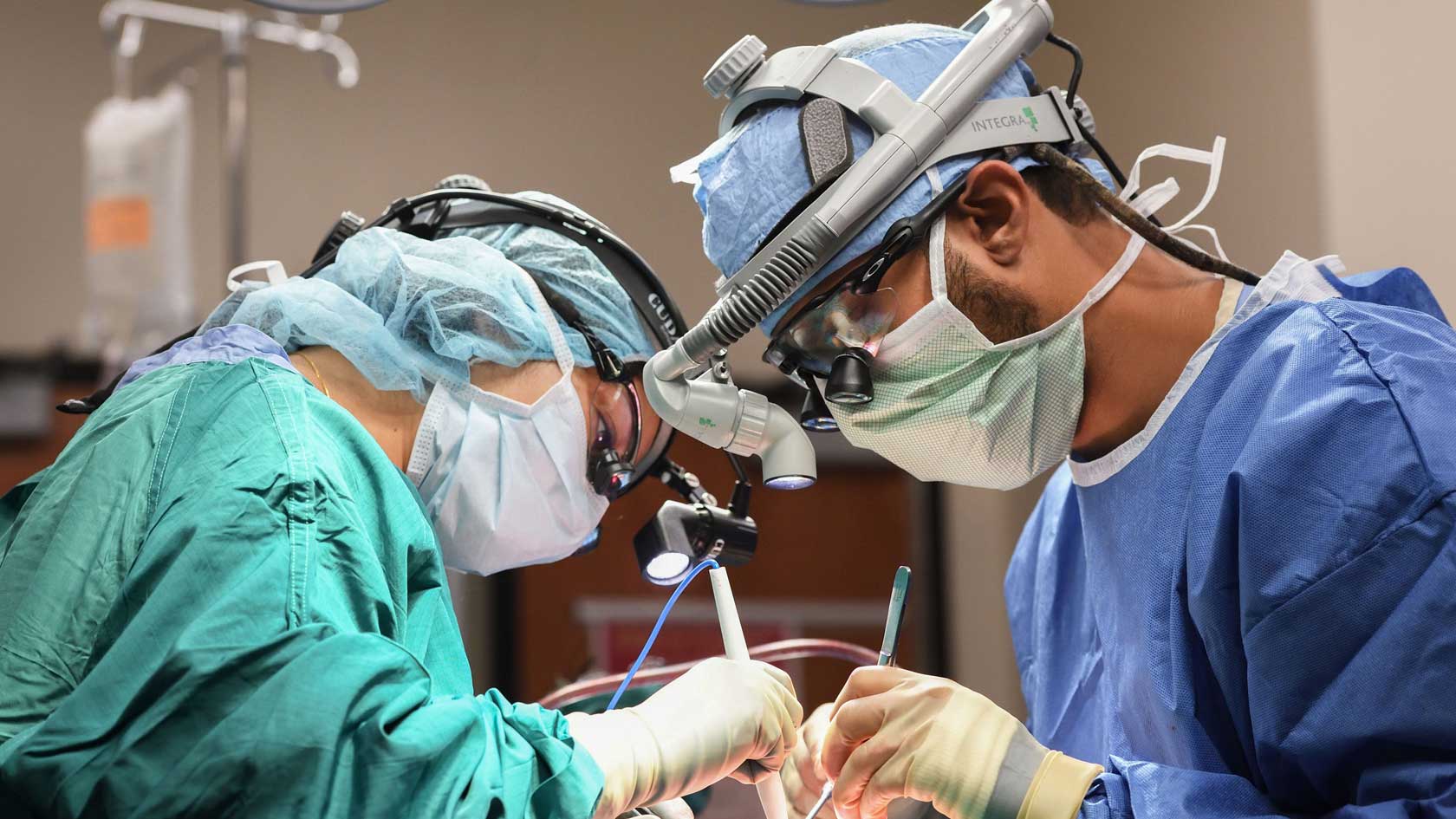How to Know It's Time to See a Voice ENT
How to Know It's Time to See a Voice ENT
Blog Article
Exploring the Area of Otolaryngology: What to Expect When You Get In Touch With an ENT
Otolaryngology, commonly described as ENT, encompasses the medical diagnosis and therapy of nose, ear, and throat problems. For those experiencing related concerns, consulting an ENT specialist can offer clearness and relief. Recognizing what to expect throughout such assessments is vital for effective interaction and care. This review will certainly lay out essential aspects of the ENT experience, including common reasons for visits and the procedures associated with medical diagnosis and treatment.

Recognizing Otolaryngology: A Review
Otolaryngology, frequently described as ENT (Ear, throat, and nose) medication, is a customized branch of medicine that concentrates on the diagnosis and treatment of problems impacting these critical areas of the body. This field includes a wide variety of conditions, including those pertaining to hearing, balance, breathing feature, and speech. Otolaryngologists are trained to handle both medical and clinical therapies, using innovative techniques and innovations. Their knowledge expands beyond standard disorders, dealing with issues such as allergies, sinus infections, and hearing loss. In addition, they play a vital role in the management of head and neck cancers cells, giving complete care tailored to specific person needs. On the whole, otolaryngology stays important for maintaining health and wellness and high quality of life in afflicted individuals.
Typical Factors to See an ENT Specialist
Several people look for the experience of an ENT professional for a range of factors, mirroring the varied nature of problems that influence the throat, ear, and nose. Typical issues include chronic sinus problems, which frequently leads to consistent nasal congestion and face pain. Allergies and their connected signs, such as itching and sneezing, additionally prompt sees to these specialists (ENT). Hearing loss, whether gradual or abrupt, is another considerable reason for examination. Additionally, individuals may seek assessment for throat problems, including consistent hoarseness or ingesting problems. Rest apnea, identified by interrupted breathing during sleep, is regularly addressed by ENT specialists. Each of these conditions highlights the significance of specialized treatment in managing complex ENT-related health problems
Preparing for Your ENT Consultation
When preparing for an ENT consultation, it is necessary to gather relevant info and think about any particular issues. People must compile an in-depth case history, consisting of previous ear, nose, or throat issues, surgical treatments, and current drugs. Recording signs-- such as regularity, duration, and extent-- can offer beneficial insights for the ENT professional. Additionally, individuals need to prepare a listing of concerns they wish to ask, making certain that all problems are dealt with throughout the check out. Bringing along any pertinent medical documents or test outcomes can better help the ENT in recognizing the person's condition. Clients must confirm their visit information, including time, day, and area, to lessen any kind of last-minute confusion. Proper preparation can enhance the performance of the consultation and result in far better outcomes.
What to Anticipate Throughout the Appointment
As the consultation starts, the patient can expect to participate in a detailed conversation with the ENT specialist concerning their signs and symptoms and case history. The specialist will ask about the duration, frequency, and extent of symptoms such as hearing loss, nasal congestion, or sore throat. Additionally, the person's previous clinical problems, medications, and any type of relevant family history will certainly be assessed, helping the professional in creating a total understanding of the individual's health and wellness. The ENT might likewise ask concerning way of life elements, such as direct exposure to toxic irritants or allergens. This open dialogue develops a structure for the appointment, ensuring that the patient's concerns are addressed and establishing the phase for any kind of necessary assessments or recommendations for therapy.
Analysis Tests and Procedures in Otolaryngology
An array of analysis tests and procedures are essential in otolaryngology to precisely review and identify conditions impacting the throat, nose, and ear. Common tests include audiometry, which measures hearing function, and tympanometry, evaluating center ear stress. Nasal endoscopy permits visualization of the nasal passages and sinuses, while laryngoscopy takes a look at the throat and vocal cords. Imaging methods, such as CT scans and MRIs, give in-depth views of head and neck frameworks. Allergy testing may likewise be carried out to recognize triggers for sinus or respiratory system concerns. These analysis devices enable ENT experts to establish a thorough understanding of people' conditions, ensuring customized and efficient monitoring strategies. Correct medical diagnosis is necessary for effective therapy results in otolaryngology.
Treatment Alternatives Offered by ENT Specialists
ENT experts provide a range of therapy options tailored to attend to specific conditions impacting the nose, ear, and throat. These treatments range from conservative strategies, such as medicine and lifestyle adjustments, to more invasive procedures. As an example, allergic reactions might be handled with antihistamines or immunotherapy, while chronic sinus problems might need nasal corticosteroids or sinus surgery. For hearing loss, ENT experts typically recommend listening device or surgical treatments like cochlear implants. In situations of throat problems, alternatives can consist of speech therapy or surgical procedures to get rid of obstructions. In addition, they might offer guidance for managing rest apnea, including using CPAP devices or medical treatments. Overall, the objective is to enhance individuals' high quality of life through customized treatment and effective treatment strategies.
When to Look For Follow-Up Treatment With an ENT
Identifying when to look for follow-up treatment with an ENT specialist is essential for handling recurring symptoms or complications associated with nose, throat, and ear conditions. Patients need get more info to think about setting up a follow-up visit if signs linger despite preliminary therapy, such as persistent ear discomfort, nasal blockage, or throat discomfort. Adjustments in hearing, balance issues, or unusual nasal discharge might additionally warrant more analysis. Additionally, if a patient experiences adverse effects from suggested medications or has undertaken a surgery, follow-up care is necessary to check recovery and address any type of concerns. Prompt assessments can ensure reliable management of problems, protect against potential problems, and provide comfort pertaining to one's wellness. Looking for follow-up care advertises proactive health and wellness monitoring in otolaryngology.
Often Asked Questions

What Qualifications Should I Seek in an ENT Expert?
When looking for an ENT professional, one must seek board qualification, relevant experience, and solid individual evaluations. Additionally, efficient interaction skills and a caring technique can substantially boost the overall treatment experience.
Exactly how Do I Pick the Right ENT for My Demands?
Choosing the best ENT expert entails examining their credentials, experience, and individual evaluations (Otolaryngology). It is necessary to consider their communication style and approach to treatment, guaranteeing they straighten with the individual's specific health needs and preferences
Are There Any Dangers Connected With ENT Procedures?
The dangers related to ENT procedures may include infection, bleeding, anesthetic problems, and potential damages to bordering structures. Patients should talk about these dangers with their medical professional to comprehend private issues and warranty informed choices.
Just How Can I Handle Anxiousness Prior To My ENT Visit?
To manage stress and anxiety before an appointment, people can practice deep breathing workouts, picture positive outcomes, prepare inquiries beforehand, and look for assistance from close friends or family members, promoting a sense of reassurance and calmness.
What Should I Do if I Experience Adverse Effects From Therapy?
The person needs to promptly report them to their health care company if side effects from therapy take place. Adjustments to therapy or added treatments might be needed to guarantee safety and security and performance in handling their condition - Otolaryngology. As the assessment starts, the person can anticipate to involve in a detailed discussion with the ENT expert about their signs and symptoms and medical history. These diagnostic devices make it possible for ENT experts to develop a comprehensive understanding of people' problems, making certain customized and efficient management strategies. ENT experts provide a range of treatment choices tailored to address particular problems influencing the nose, throat, and ear. When seeking an ENT expert, one need to look for board qualification, relevant experience, and solid patient reviews. Selecting the appropriate ENT expert involves examining their credentials, experience, and person reviews
Report this page